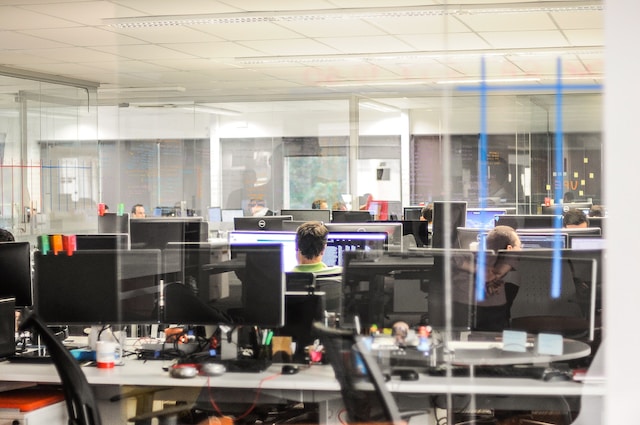DevSecOps Engineer vs. Security Architect
DevSecOps Engineer vs Security Architect: A Comprehensive Comparison

Table of contents
In the rapidly evolving landscape of cybersecurity, two roles have emerged as critical to safeguarding digital assets: the DevSecOps Engineer and the Security Architect. While both positions focus on enhancing security, they differ significantly in their responsibilities, required skills, and overall impact on an organization. This article delves into the nuances of each role, providing a detailed comparison to help aspiring professionals make informed career choices.
Definitions
DevSecOps Engineer: A DevSecOps Engineer integrates security practices into the DevOps process, ensuring that security is a shared responsibility throughout the software development lifecycle. This role emphasizes collaboration between development, operations, and security teams to automate security measures and enhance the overall security posture of applications.
Security Architect: A Security Architect is responsible for designing and implementing robust security systems and frameworks within an organization. This role focuses on creating security policies, standards, and architectures that protect an organization’s information systems from potential threats and Vulnerabilities.
Responsibilities
DevSecOps Engineer
- Integrate security tools and practices into CI/CD pipelines.
- Automate security testing and vulnerability assessments.
- Collaborate with development and operations teams to ensure secure coding practices.
- Monitor and respond to security incidents in real-time.
- Conduct security training and awareness programs for development teams.
Security Architect
- Design and implement security architectures for applications and networks.
- Develop security policies, standards, and guidelines.
- Conduct risk assessments and threat modeling.
- Evaluate and recommend security technologies and solutions.
- Collaborate with stakeholders to ensure Compliance with regulatory requirements.
Required Skills
DevSecOps Engineer
- Proficiency in programming and scripting languages (e.g., Python, Java, Bash).
- Knowledge of CI/CD tools (e.g., Jenkins, GitLab CI).
- Familiarity with security tools (e.g., SAST, DAST, IAST).
- Understanding of Cloud security principles and practices.
- Strong collaboration and communication skills.
Security Architect
- Expertise in security frameworks and standards (e.g., NIST, ISO 27001).
- In-depth knowledge of network security, Application security, and data protection.
- Proficiency in Risk management and threat modeling techniques.
- Strong analytical and problem-solving skills.
- Excellent communication and documentation abilities.
Educational Backgrounds
DevSecOps Engineer
- Bachelor’s degree in Computer Science, Information Technology, or a related field.
- Relevant certifications (e.g., Certified DevSecOps Professional, AWS Certified DevOps Engineer).
- Hands-on experience in software development and security practices.
Security Architect
- Bachelor’s degree in Cybersecurity, Information Security, or a related field.
- Advanced degrees (e.g., Master’s in Cybersecurity) are often preferred.
- Relevant certifications (e.g., Certified Information Systems Security Professional (CISSP), Certified Information Security Manager (CISM)).
Tools and Software Used
DevSecOps Engineer
- CI/CD tools: Jenkins, GitLab, CircleCI.
- Security testing tools: SonarQube, OWASP ZAP, Fortify.
- Container security tools: Aqua Security, Twistlock.
- Monitoring tools: Splunk, ELK Stack.
Security Architect
- Security information and event management (SIEM) tools: Splunk, IBM QRadar.
- Vulnerability assessment tools: Nessus, Qualys.
- Identity and access management (IAM) solutions: Okta, Microsoft Azure AD.
- Network security tools: Firewalls, intrusion detection systems (IDS).
Common Industries
DevSecOps Engineer
- Technology and software development companies.
- Financial services and FinTech.
- E-commerce and online services.
- Healthcare and life sciences.
Security Architect
- Government and defense organizations.
- Financial institutions and banks.
- Telecommunications and IT service providers.
- Large enterprises across various sectors.
Outlooks
The demand for both DevSecOps Engineers and Security Architects is on the rise as organizations increasingly prioritize cybersecurity. According to industry reports, the global DevSecOps market is expected to grow significantly, driven by the need for faster software delivery without compromising security. Similarly, the Security Architect role is critical in addressing complex security challenges, making it a sought-after position in the cybersecurity field.
Practical Tips for Getting Started
-
Gain Relevant Experience: Start with entry-level positions in IT or software development to build foundational skills. Look for internships or co-op programs that focus on security.
-
Pursue Certifications: Obtain relevant certifications to validate your skills and knowledge. For DevSecOps, consider certifications like AWS Certified DevOps Engineer. For Security Architects, CISSP or CISM are highly regarded.
-
Build a Portfolio: Work on personal projects or contribute to open-source projects that showcase your skills in security practices and architecture design.
-
Network with Professionals: Join cybersecurity forums, attend industry conferences, and connect with professionals on platforms like LinkedIn to learn from their experiences and gain insights into the field.
-
Stay Updated: Cybersecurity is a constantly evolving field. Follow industry news, blogs, and podcasts to stay informed about the latest trends, tools, and best practices.
By understanding the distinctions between the DevSecOps Engineer and Security Architect roles, aspiring cybersecurity professionals can better navigate their career paths and make informed decisions that align with their interests and skills.
Manager SAP Security
@ KPMG Nederland | Amstelveen, NH, Netherlands
Full Time Entry-level / Junior EUR 66K+Production Service Systems Administrator 1
@ Oracle | United States
Full Time Mid-level / Intermediate USD 56K - 112KInformation System Security Officer
@ Leidos | 10469 Wright Patterson AFB OH, United States
Full Time Senior-level / Expert USD 104K - 189KSenior Security Analyst
@ Thales | Texas Remote Worker, United States
Full Time Senior-level / Expert USD 126K - 179KSenior Vulnerability Management Analyst
@ John Lewis Partnership | Bracknell Campus, United Kingdom
Full Time Senior-level / Expert GBP 48K - 74K